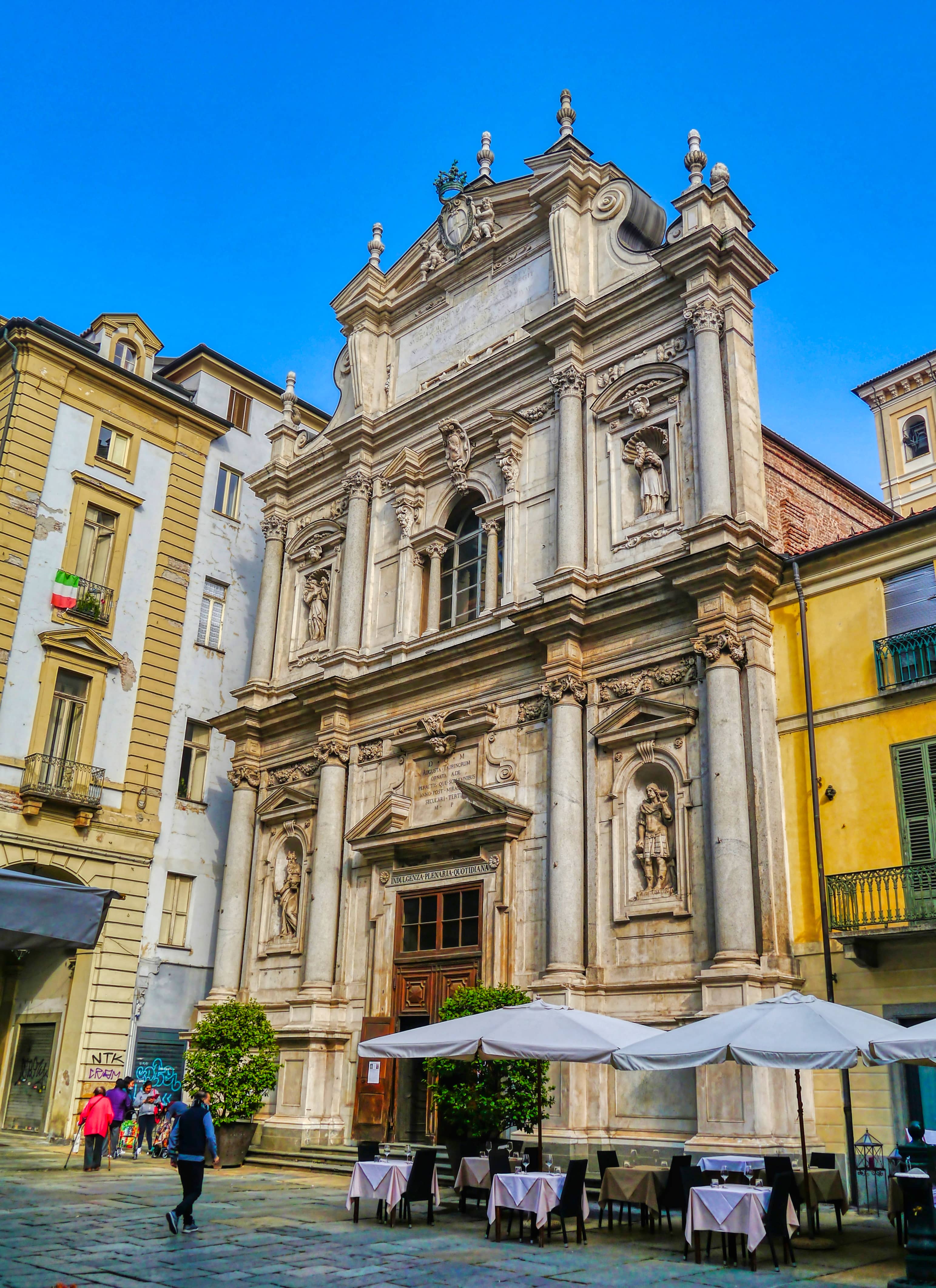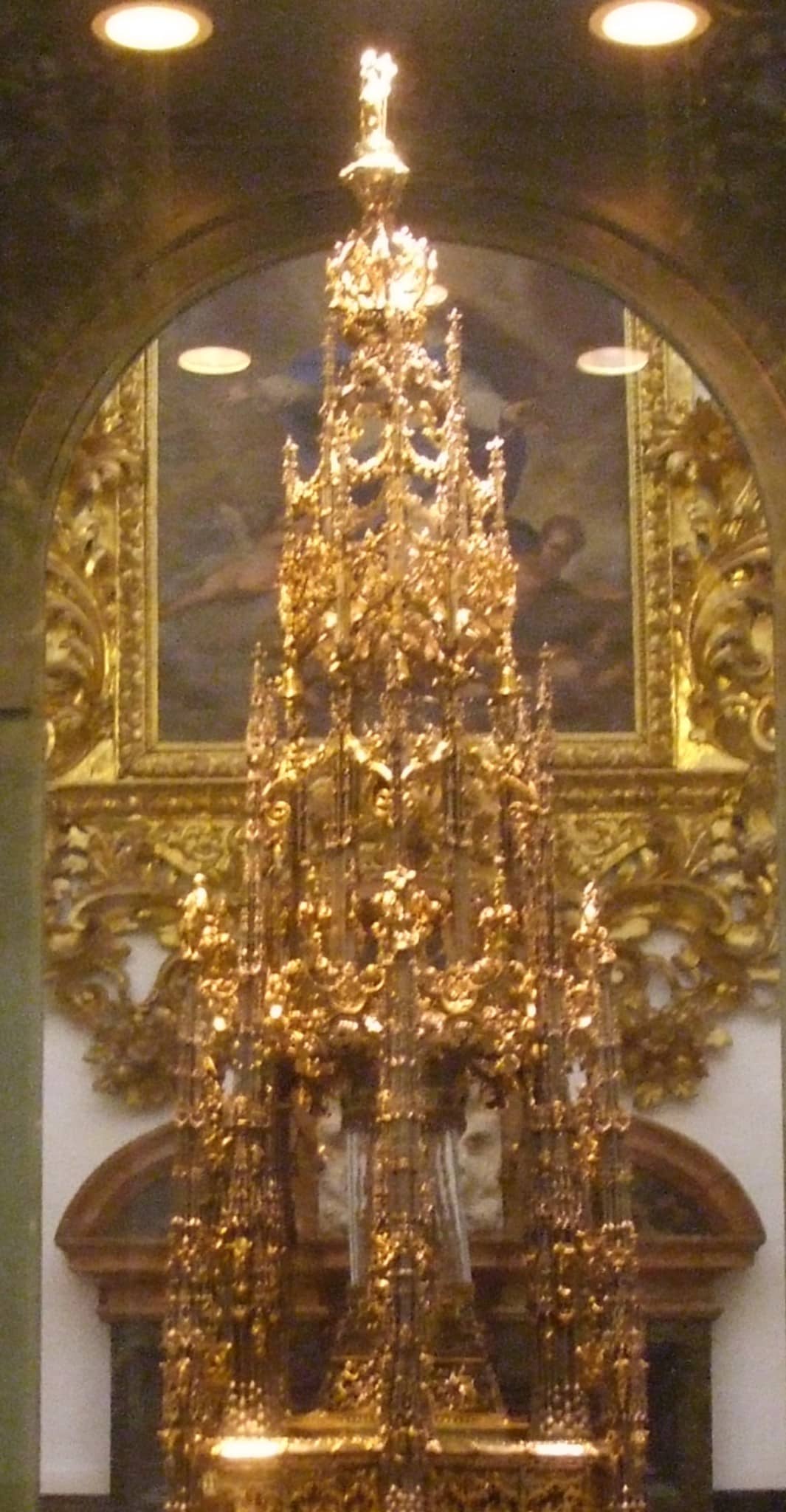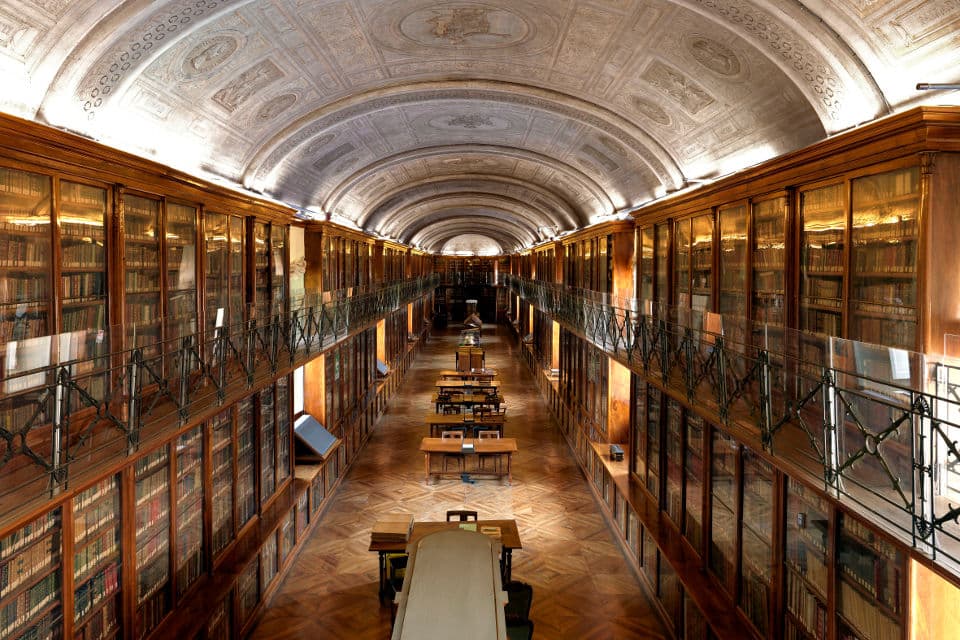
Corpus Domini Church
A 17th-century Baroque church famed for its artistic facade and the legendary Eucharistic Miracle of 1453.

Highlights
Must-see attractions

Social
From TikTok & Reddit
Best Time
Fewer crowds, peaceful atmosphere

Corpus Domini Church
Best Time
Fewer crowds, peaceful atmosphere

Highlights
Must-see attractions
A 17th-century Baroque church famed for its artistic facade and the legendary Eucharistic Miracle of 1453.
"The facade is beautiful. The interior is sumptuous. The ceiling is nicely decorated and painted."

Admire the Facade Details
Don't miss the statues of St Charles Borromeo and St Francis of Sales on the facade. :statue:
Look for the Monstrance
The preserved monstrance behind glass is a key relic of the Eucharistic Miracle. :relic:

Highlights
Discover the most iconic attractions and experiences

Baroque Facade
An artistic sandstone facade with statues, divided by decorative friezes. Ascanio Vittozzi's masterpiece.

Sumptuous Interior
Richly decorated ceiling frescoes, fabulous paintings, and a high altar of polychrome marble.

The Eucharistic Miracle Display
Discover the preserved monstrance and paintings depicting the legendary Eucharistic Miracle of 1453.
Plans like a pro.
Thinks like you
Planning Your Visit
Embrace the Baroque Facade
Uncover the Eucharistic Miracle
Best Times
Insider Tips
from TikTok, Instagram & Reddit
Admire the Facade Details
Don't miss the statues of St Charles Borromeo and St Francis of Sales on the facade. :statue:
Look for the Monstrance
The preserved monstrance behind glass is a key relic of the Eucharistic Miracle. :relic:
Appreciate the Ceiling Art
The ceiling frescoes detail the stages of the legendary miracle. :painting:
Check the High Altar
The polychrome marble high altar is an impressive, though dimly lit, gem. :altar:
Tips
from all over the internet
Admire the Facade Details
Don't miss the statues of St Charles Borromeo and St Francis of Sales on the facade. :statue:
Look for the Monstrance
The preserved monstrance behind glass is a key relic of the Eucharistic Miracle. :relic:
Appreciate the Ceiling Art
The ceiling frescoes detail the stages of the legendary miracle. :painting:
Check the High Altar
The polychrome marble high altar is an impressive, though dimly lit, gem. :altar:
What Travellers Say
Reviews Summary
Visitors praise the church's beautiful facade and sumptuous interior, highlighting the richly decorated ceiling and fabulous paintings. The historical significance, particularly the legend of the Eucharistic Miracle, is a major draw. Some note the interior can be dimly lit, affecting the visibility of some artworks.
"The façade is beautiful. The interior is sumptuous. The ceiling is nicely decorated and painted. Paintings are fabulous."
Percy Chang
"East of Piazza Castello on Via Palazzo di Citta stands the votive Basilica of Corpus Domini, a Baroque place of worship that despite its polluted facade and oppressively dusty furnishings is still considered as one of Ascanio Vittozzi’s architectural masterpieces.
Extending over a corner between two medieval streets that lead to the town’s Municipio, the Church of Corpus Domini is a 16th-century single-nave temple with two side chapels and an artistic sandstone facade, neatly divided into three by decorative friezes sculpted in the stonework. The colonnaded doorway on the lower section is flanked by a pair of niches that house the statues of St Charles Borromeo and St Francis of Sales. Another pair of similar niches decorate the upper section where a wonderful arched window takes pride of place. A roof pediment complete with pointed turrets, a central coat-of-arms and an unreadable (read: heavily polluted) panelled inscription crowns the top.
The high altar sculpted out of polychrome marble is an impressive gem but unfortunately marred as a result of the lack of light in the nave. Two pairs of spiral Corinthian columns, painted black and gilded, support the choir vault behind the high altar. Look at the richly decorated tribune suspended above the altar. It is a gilded piece of embroidered craftwork inlaid with semi-precious stones and surrounded with an ornate gilded frame.
Visitors usually come here to inquire into the veracity of the legend linked to this church: the Eucharistic Miracle of 1453. It is said that on the feast day of Corpus Domini, a stolen monstrance that contained a consecrated host remained suspended in midair exactly on the spot where the church was later built.
Inside the church, mementoes associated with this miracle have been preserved and some are on display. A plaque dating back to the first half of the 18th century narrates the story in brief while a painting (by Bartolomeo Caravoglia) depicting the miracle takes centre stage in the nave. Check out the ceiling frescoes and amidst a profusion of gilded frames and stucco, you can follow step by step the various stages of the legendary miracle.
Before you step out of the church, look at the preserved monstrance behind glass on the left side of the nave near the main door. Locals say it is the original receptacle that contained the miraculous host."
Mario Falzon
"Beautiful. Must see."
Damjan Sano
What People Like
What People Dislike
Frequently Asked Questions
🚇 🗺️ Getting There
Corpus Domini Church is located east of Piazza Castello on Via Palazzo di Citta. It's easily accessible on foot if you are in the city center.
The church is situated in the heart of the city, making it convenient to reach via local buses that stop near Piazza Castello. Check local transit schedules for the best routes.
Parking in the immediate vicinity can be challenging due to its central location. It's recommended to use public transport or park in a designated city parking garage and walk.
🎫 🎫 Tickets & Entry
Entry to Corpus Domini Church is typically free, as it is an active place of worship. Donations are often appreciated.
Opening hours can vary, but churches are generally open during daylight hours. It's advisable to check local listings or inquire upon arrival for specific times.
Yes, you can usually visit on Sundays, but be mindful of Mass times. Services may limit visitor access to certain areas.
Accessibility can be limited in older churches. While the main nave might be accessible, some areas or chapels may have steps. Inquire at the entrance for assistance.
📸 📸 Photography
Photography is generally permitted inside Corpus Domini Church, but it's important to be respectful. Avoid using flash, especially during services, and be mindful of other visitors.
Capture the intricate details of the Baroque facade, the stunning ceiling frescoes, and the high altar. The preserved monstrance also makes for a unique photo opportunity.
Always check for posted signs regarding photography rules. Some areas or specific artworks might be off-limits for photos.
🎫 📜 History & Significance
The church is renowned for the Eucharistic Miracle of 1453, where a stolen host allegedly remained suspended in mid-air. It's considered an architectural masterpiece by Ascanio Vittozzi.
The legend states that on the feast day of Corpus Domini, a stolen monstrance with a consecrated host was found suspended in the air, marking the spot where the church was later built.
The church is considered one of Ascanio Vittozzi's architectural masterpieces.
Inside, you can find mementos, a plaque detailing the story, a painting by Bartolomeo Caravoglia depicting the miracle, and the preserved monstrance.
For Different Travelers
Tailored advice for your travel style
History Enthusiasts
Art and Architecture Aficionados
Deep Dives
In-depth insights and expert knowledge
Architectural Marvels: Facade and Interior
Upon entering, visitors are met with a sumptuous interior. The single nave is adorned with two side chapels, and the high altar, sculpted from polychrome marble, is a significant focal point. The ceiling is a canvas of vibrant frescoes that meticulously illustrate the stages of the legendary Eucharistic Miracle. Look up to admire the richly decorated tribune above the altar, a gilded masterpiece inlaid with semi-precious stones.
The Eucharistic Miracle of 1453
Within the church, tangible reminders of this miracle are preserved. A plaque from the early 18th century provides a brief narrative, while a significant painting by Bartolomeo Caravoglia vividly depicts the miraculous event in the nave. The ceiling frescoes also serve as a visual guide, detailing each step of the legendary occurrence. A particularly poignant artifact is the preserved monstrance, displayed behind glass near the main door, which locals believe is the original receptacle that held the miraculous host.






Social
from TikTok, Instagram & Reddit